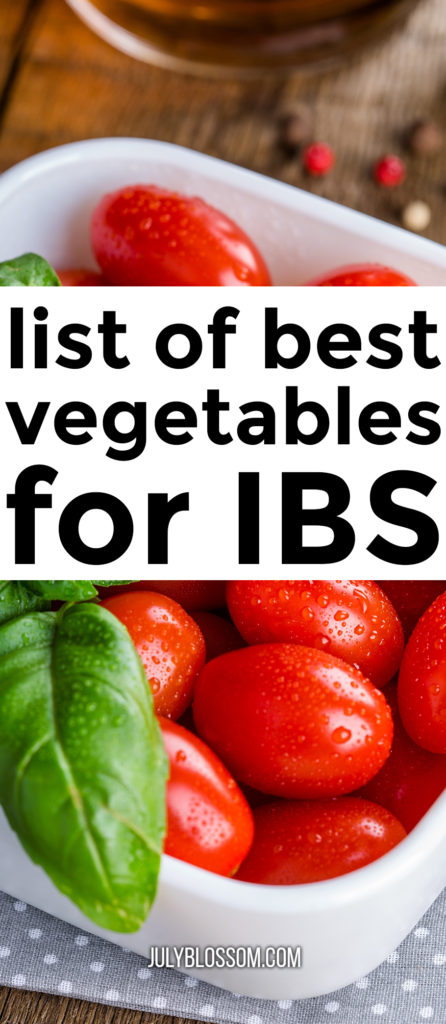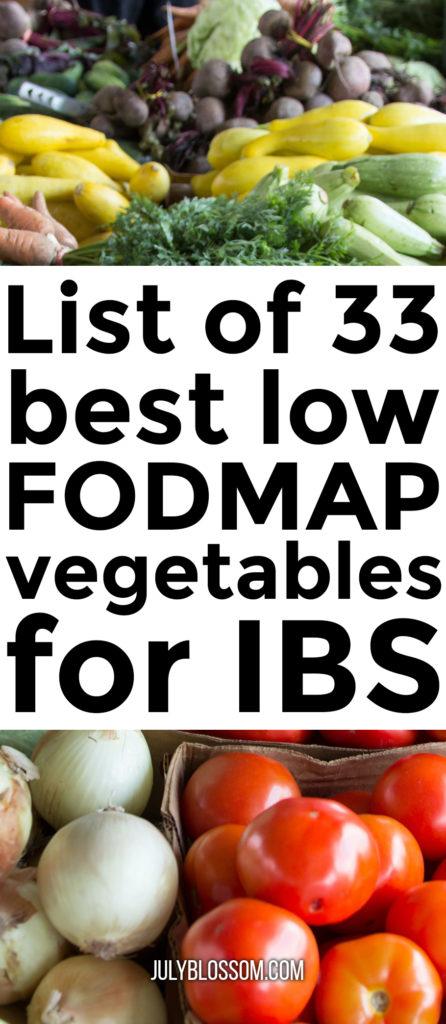
It can be very tricky finding out what the best vegetables for IBS are, because everyone is different. What may bother your stomach can be okay for someone else’s stomach.
However, there are some vegetables that you can consume more freely without worrying too much about if it’ll make your symptoms flare up.
I’ve put together a small list of some of the best vegetables for IBS. I hope it helps you!
What Vegetables Can You Eat with IBS?
When you have IBS, you may find that your body reacts badly to certain vegetables more than others. You may notice you experience little to no flare-ups when you eat low FODMAP vegetables.
FODMAP in full form is fermentable oligosaccharides, disaccharides, monosaccharides and polyols.
They are a group of carbohydrates that are not easily absorbed and are quickly fermented by our natural gut flora. This causes gastrointestinal symptoms in people with IBS such as bloating, gas, abdominal pain, constipation and diarrhea.
Below is a list of vegetables that are low in FODMAPs. This means you can consume them more freely than other vegetables, without worrying if they may cause gut trouble.
A 2013 study published in the National Library of Medicine found that the low FODMAP diet was efficient in minimizing IBS symptoms of abdominal pain, bloating, flatulence and diarrhea.
About 72% of the patients were satisfied in their symptoms after adhering to the low FODMAP diet.
List of Best Vegetables for IBS

- Tomatoes
- Sprouts
- Lettuce
- Spinach
- White potato
- Collard greens
- Bell pepper
- Carrots
- Mushrooms
- Cucumber
- Watercress
- Baby corn
- Kale
- Green onions
- Parsnip
- Radish
- Arugula
- Egg plant
- Bok choy
- Plantain
- Green beans
- Okra
- Alfalfa
- Bamboo shoots
- Rutabaga
- Yam
- Zucchini
- Water chestnuts
- Butter nut squash
- Turnip
- Fennel
- Sweet potato
- Endive
great list thanks!